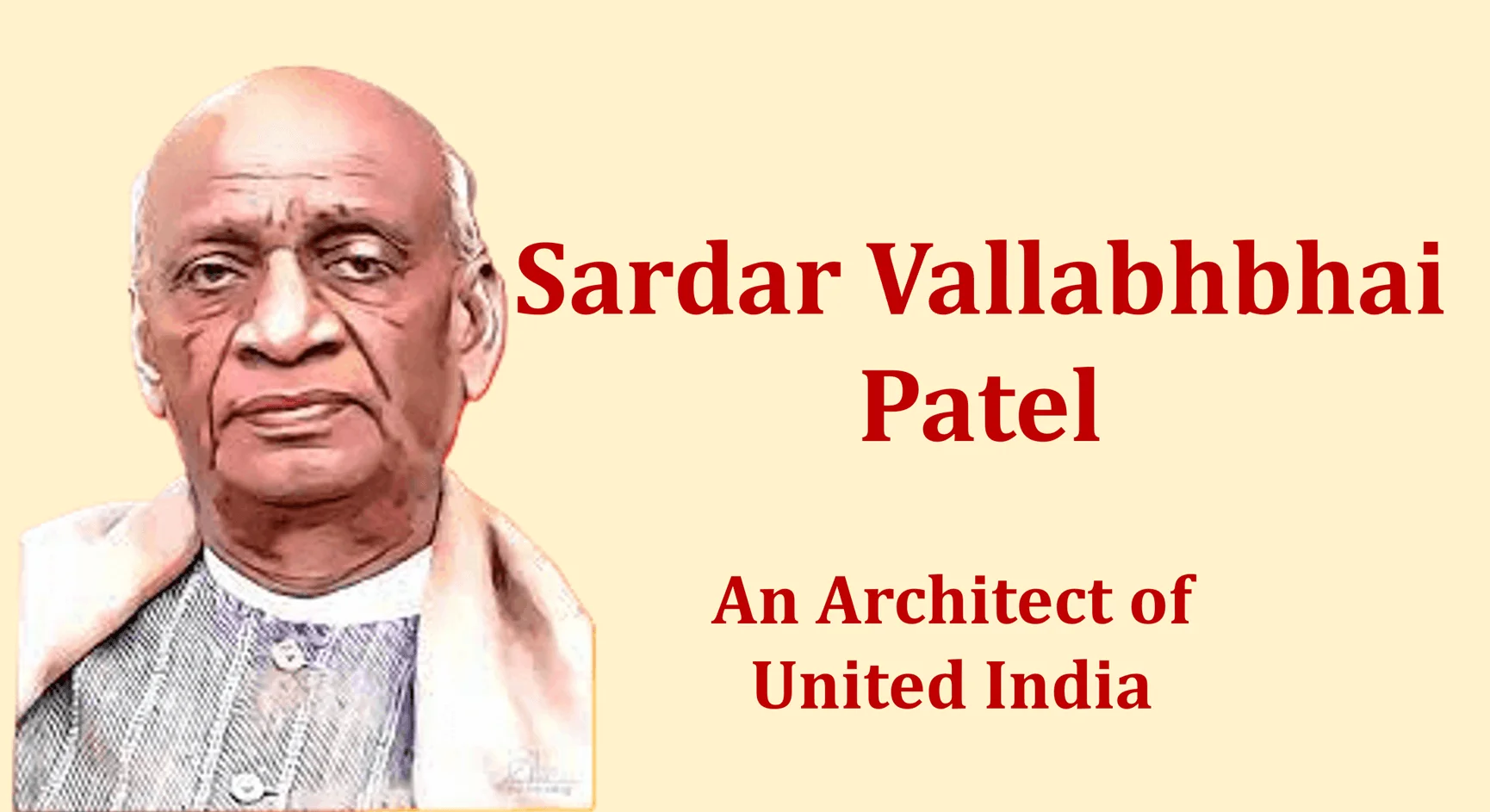


This year, as India celebrates Sardar Patel's birth anniversary, we acknowledge the role he played in shaping modern India. As the first Home Minister and Deputy Prime Minister of the country, Patel's contributions are often overlooked but his efforts in unifying the princely states and establishing the all-India services system have greatly impacted the nation's governance. Through diplomatic negotiations and strategic thinking, Patel was able to bring together more than 500 separate territories and pave the way for a united Indian nation.
Iron Man of India: Sardar Vallabhbhai Patel and His Legacy
Background
Sardar Vallabhbhai Patel, hailed as the "Iron Man of India," was a preeminent figure in the Indian independence movement and the first Home Minister and Deputy Prime Minister of the newly formed Republic of India. Born on October 31, 1875, in Nadiad, Gujarat, Patel was a lawyer by profession before he joined the Indian National Congress under the tutelage of Mahatma Gandhi.
Contributions to Indian Independence
Patel played a pivotal role in the Quit India Movement of 1942, which demanded the immediate independence of India from British colonial rule. He was arrested and imprisoned for seven years. After his release, he assisted Mahatma Gandhi in the negotiations leading to India's independence in 1947.
Unification of India
Following India's independence, Patel faced the daunting task of unifying the princely states that had existed within British India. Through diplomacy, negotiation, and sometimes force, he brought over 560 princely states under the Indian Union, creating a unified and sovereign nation.
Institutional Reforms
Patel played a crucial role in shaping the governance of India. He established the Indian Administrative Service (IAS) and the Indian Police Service (IPS), which have served as the backbone of the Indian bureaucracy. He also played a key role in the drafting of the Indian Constitution.
Legacy and Significance
Sardar Patel died on December 15, 1950, at the age of 75. He is remembered as one of the architects of modern India, whose contributions to unity, governance, and national security continue to shape the nation today. His legacy is celebrated through the annual Sardar Patel Jayanti, which is observed on his birth anniversary.
Top 5 FAQs and Answers
Q: What were Sardar Patel's main achievements? A: Unification of princely states, establishment of IAS and IPS, drafting of Indian Constitution
Q: Why was Patel known as the "Iron Man of India"? A: Due to his strong will, determination, and unwavering commitment to India's unity and independence
Q: What was Patel's relationship with Mahatma Gandhi? A: Patel was a close associate and follower of Gandhi, often called his "right-hand man"
Q: What are some of the current events related to Sardar Patel? A: Annual Sardar Patel Jayanti, efforts to preserve his legacy through museums and memorials
Q: How is Patel's legacy being honored in modern India? A: Through the erection of statues, naming of institutions and roads after him, and the celebration of his birth anniversary as a national holiday

A detailed LinkedIn post by Indian Prime Minister Narendra Modi has highlighted the issue of unclaimed financial assets in the country, with more than Rs 1 lakh crore lying untouched in banks, insurance companies, and investment platforms. In October 2025, the government launched the ‘Aapki Poongi, Aapka Adhikaar – Your Money, Your Right’ initiative to simplify the search and claim process for these funds. Through facilitation camps and dedicated digital platforms, nearly Rs 2,000 crore has already been returned to rightful claimants. PM Modi urges citizens to check for any unclaimed funds and contribute to the mission of building a transparent, financially empowered and inclusive India.

On the birth anniversary of C Rajagopalachari, Prime Minister Narendra Modi paid tribute to the Indian freedom fighter and honored his contributions to India's governance and independence movement. In addition, PM Modi also remembered the bravery of those who fought in the Assam Movement on the occasion of Martyrs' Day. He emphasized that Assam Movement holds an important place in Indian history and his government is committed to fulfilling the dreams of the agitators for the all-round development of the state. PM Modi also shared interesting archival material, showcasing the life and work of C Rajagopalachari on his birth anniversary.

Congress leader Mallikarjun Kharge slammed the BJP in the Rajya Sabha for attacking the Congress over the use of two stanzas of Vande Mataram as the national song. He pointed out that it was his party, not the BJP, who championed the slogan during the freedom struggle. Kharge also criticized the government for neglecting important issues facing the country such as the rights of weaker sections.

Speaking in the Lok Sabha, Union Home Minister Amit Shah criticized the Congress Party for dividing the national song Vande Mataram for the sake of appeasement, leading to the partition of India. He also called for discussions on the significance of Vande Mataram in Parliament, in light of the Emergency imposed during its 100th anniversary. Shah further challenged the Gandhi family to stop boycotting discussions on important issues and engage in productive debates.

Following a productive discussion with Microsoft CEO Satya Nadella, Prime Minister Narendra Modi expressed optimism about India's progress and leadership in Artificial Intelligence (AI). This was accompanied by Microsoft's announcement to make its largest-ever investment in Asia in India, highlighting the nation's growing role as a trusted destination for innovation and technology. PM Modi welcomed this opportunity and expressed confidence that the youth of India will utilize the power of AI for a better planet.

Political tensions in Maharashtra took a surprising turn as the Shiv Sena's mouthpiece, Saamana, praised Chief Minister Devendra Fadnavis for successful development in the once Naxal-dominated district of Gadchiroli. The editorial highlighted Fadnavis's commitment to the district and his efforts to transform it into a "Steel City" rather than being known as a Naxal stronghold. The response from Shiv Sena (UBT) leader Sanjay Raut also showed support for Fadnavis and his initiatives in the region. This unexpected praise from the Shiv Sena has added a new dynamic to the state's political atmosphere.

The Telangana Rising Global Summit, spearheaded by Chief Minister Revanth, is gaining attention as an event of great significance. A number of Memorandums of Understanding (MoUs) have been signed with industrialists and state authorities to encourage substantial investments in Telangana. Notably, an MoU was signed with the Vantara team, led by Mukesh Ambani, to establish a zoo park in Future City. This was just one of the many agreements made, with a staggering Rs. 2 lakh crore promised for investments in the Telangana power sector in a single day. The opening ceremony, attended by dignitaries like State Governor Jishnu Dev Verma and Union Minister Kishan Reddy, saw Chief Minister Revanth lay out ambitious targets for Telangana's growth as part of their 'Telangana Rising 2047 Vision'.

The Mumbai Police has filed FIRs against the directors of popular ride-hailing services Rapido and Ola for allegedly operating bike taxi services without proper licenses or permissions. This has sparked a social media frenzy with the hashtag #MumbaiNeedsBikeTaxi trending and users calling for the city to embrace these services again. Many see bike taxis as a necessity, especially for workers and students, and are pleading for the ban to be reversed.

A Delhi-based lawyer has filed a revision petition challenging a magistrate court's refusal to direct the filing of an FIR against former Congress president Sonia Gandhi. The petition alleges that her name was included in the voter list before she acquired Indian citizenship, prompting the Rouse Avenue Court to issue notices to both Sonia Gandhi and the Delhi Police. The court has sought replies from both parties, with the next hearing scheduled for January 6, 2026.

The much-awaited discussion on electoral reforms in India's Winter Session of Parliament has finally begun on Day 7. Opposition leaders, led by Rahul Gandhi, have been demanding a debate on the Special Intensive Revision (SIR) of voter rolls, accusing the government of targeting marginalized communities. Meanwhile, the government maintains that the SIR is necessary to clean up and ensure accurate voter lists. As Parliament debates this important issue, the discussion is expected to shape public trust in India's electoral system. Later today, Rajya Sabha will also hold a debate on Vande Mataram.